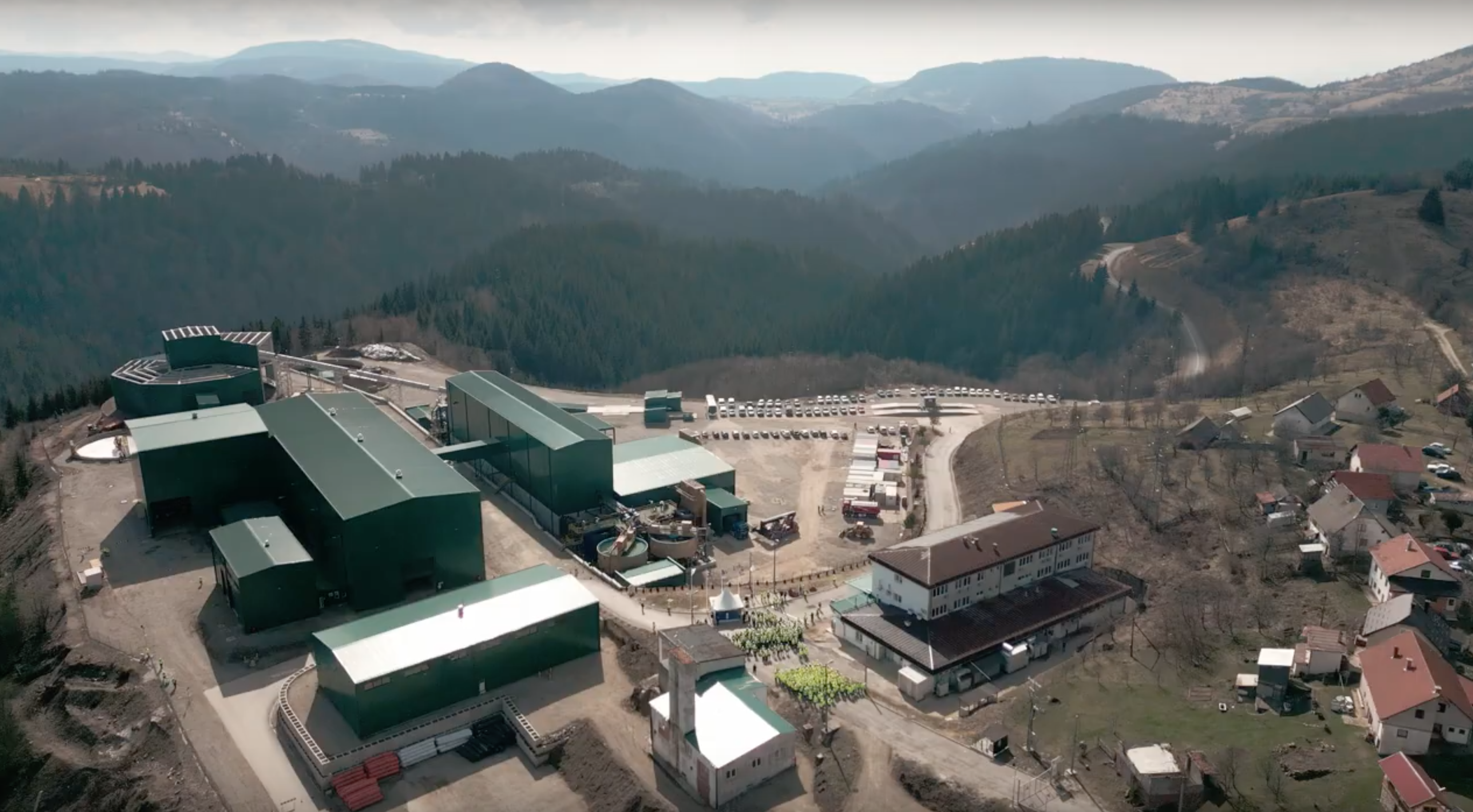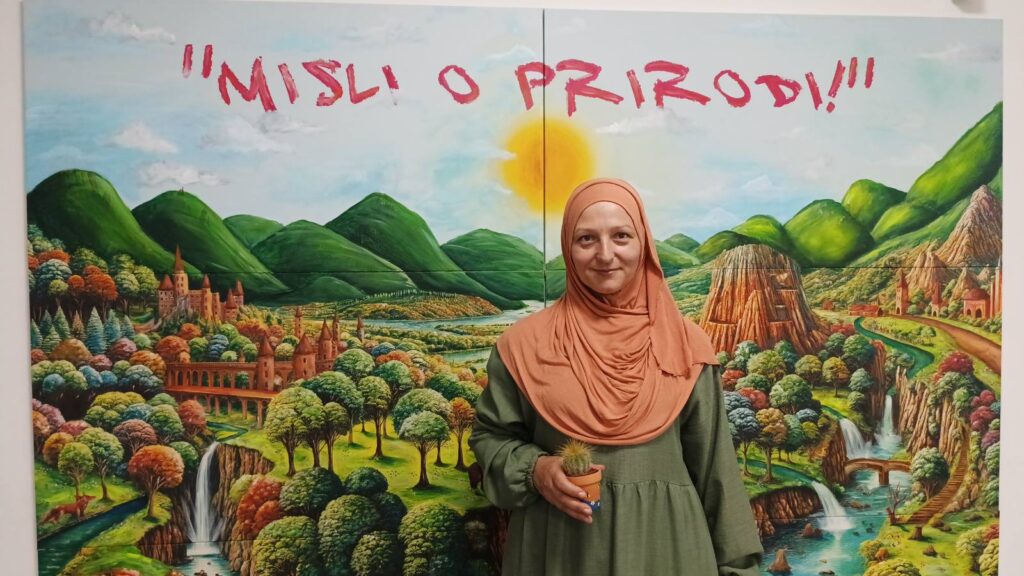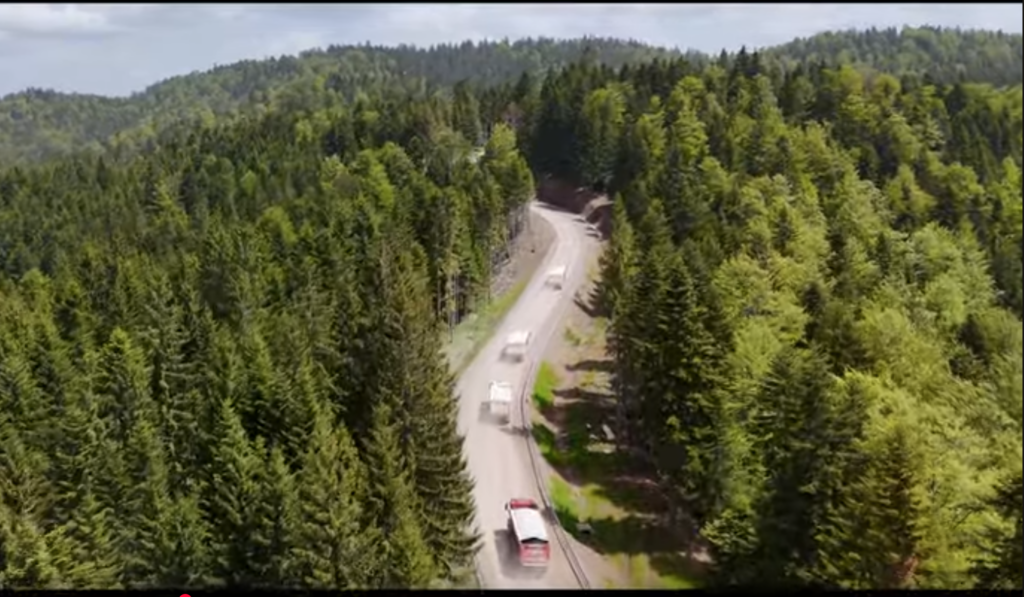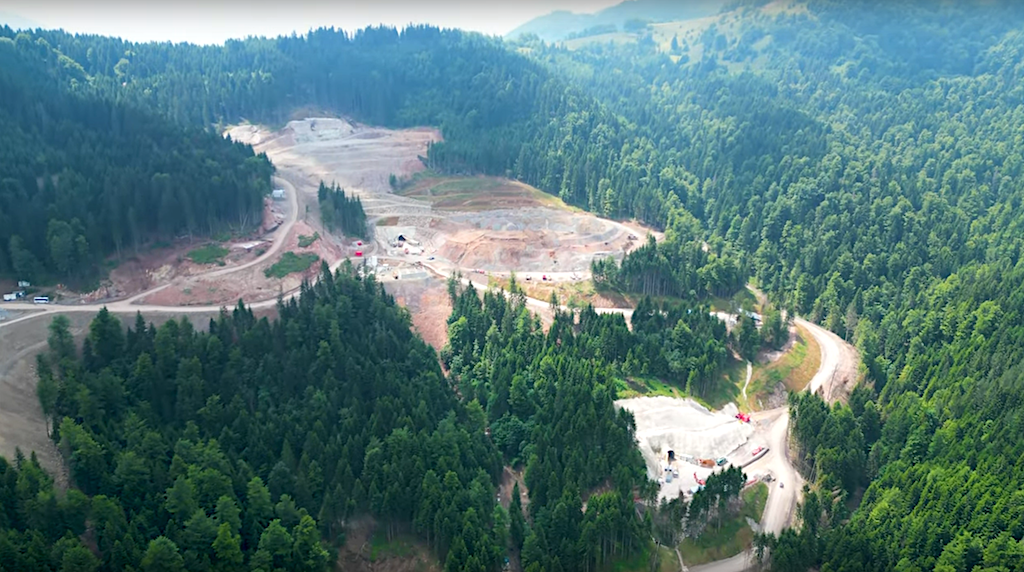According to the latest annual Corruption Perceptions Index (CPI), Bosnia and Herzegovina is among the three most corrupt countries in Europe . Transparency International points out that in Bosnia and Herzegovina, now reduced to a semblance of democracy, the government, struggling with a crisis of legitimacy, is exerting ever-increasing pressure on critics of state institutions and government decisions. This pressure is accompanied by increasingly restrictive legislation on freedom of expression.
At the same time, the leadership in power favours foreign investors who, upon payment of minimum state royalties, illegally cut down high-value forests and pollute drinking water sources with heavy metals.
The story of the Vareš mine has divided public opinion in Bosnia and Herzegovina. Despite promises of economic recovery in what was once a major mining and industrial center, and today is one of the poorest municipalities in Bosnia and Herzegovina.
The British company Adriatic Metals – that obtained the concession to use the land on which the Vareš mine is located – has been repeatedly accused of illegal deforestation. At one point, the mining permit issued to Adriatic Metals was revoked due to concerns that the mining activities could endanger protected springs. Activists that follow the case warn that the environmental damage caused by the company in recent years is irreparable.
Meanwhile, after initial investments of hundreds of millions of Euros in the mine construction project, located on the border between the municipalities of Vareš and Kakanj, the British company has undertaken ambitious projects to exploit zinc, barite and lead deposits, and is already planning to expand its mining operations by exploiting the large silver, gold and copper deposits in the same area. The company enjoys the full support of the government, which has declared Vareš a project of national interest. This support is evidenced by a series of state decisions that, while benefiting Adriatic Metals, violate the Constitution of Bosnia and Herzegovina and international conventions.
Experts’ recommendations ignored
The case of the Vareš mine resurfaced at the beginning of last year after the publication of alarming data contained in a document that the Kakanj water company Vodokom sent to the Inspectorate of the BiH Federation.
Vodokom requested the Inspectorate to intervene due to a sharp increase in cadmium concentrations in the Bukovica River, the main source of drinking water for the population of Kakanj. As pointed out in the document, the changes in concentrations were recorded during the intensification of construction work on the mine and a mineral processing plant owned by the Adriatic Metals company, upstream from the protected springs area of Kakanj.

Responding to the inspection request, the Inspectorate established that the cadmium was of natural origin, meaning that it was naturally present in the soil and in the Bukovica River.
In recent years, Adriatic Metals has obtained all the necessary permits for mining operations. Local and federal authorities have enthusiastically supported the Vareš mine, presenting it as one of the most important projects for the economy and development of Bosnia and Herzegovina.
Amidst the celebrations and high expectations, a group of activists, concerned about the environment and human health, filed a complaint with the Standing Committee to the Bern Convention, also signed by Bosnia and Herzegovina.
Reacting to a complaint filed by Hajrija Čobo from Kakanj, who had repeatedly warned about the potential negative effects of mining in the Vareš area, Strasbourg issued a recommendation at the end of 2022 urging the authorities of Bosnia and Herzegovina to suspend the Vareš project until the allegations contained in the complaint are verified.
However, the project was never suspended. In March 2024, the Ministry of the Environment of Bosnia and Herzegovina asked the Standing Committee to reject all allegations regarding the potential negative effects of the mine on biodiversity and water sources in central Bosnia.

The management of Adriatic Metals, concerned about the development of the case, decided to file a defamation lawsuit against activist Hajrija Čobo, thus trying to save the company’s reputation in the eyes of the local population. It was a classic SLAPP, but the agile activist from Kakanj managed to persuade the company to quickly withdraw the lawsuit.
The authorizations revoked…
Fearing that mining activities in the Vareš area could affect the Bukovica River, which supplies drinking water to approximately 30,000 residents of Kakanj, the water company Vodokom filed an appeal challenging the 2021 decision by the Ministry of Energy, Mines and Industry of the Federation of BiH to grant Adriatic Metals a mining permit.
The public became aware of this appeal only three years later, more precisely on 30 December, 2024, when a court in Mostar annulled the license granted to the British company.
The ruling states that the environmental impact assessment did not specify whether and what impact the mining activity could have on the facilities for extracting water from the Bukovica River.
Meanwhile, some imprecise observations by the Tuzla Mining Institute regarding the mine’s location in relation to the Bukovica River have also emerged. The study did not precisely define the location of the area for which the exploitation permit was requested, so it was never established whether this area partially coincided with that of the protected springs.
The case was referred to the relevant ministry for reconsideration. The public opinion and activists welcomed the court’s decision, hoping that the entire procedure and all analyses related to mining would be redone. They also hoped to participate in the decision-making process regarding any future permit.
...then immediately renewed
The ministry reacted promptly. As soon as the media published the ruling, just fifteen days after the controversial permit was annulled, the ministry issued a new authorization, integrating the documentation it had received from Adriatic Metals in the meantime. All this occurred without organizing a public debate. The new document was never published, so we obtained it by invoking the law on free access to information.
“Continuous hydrogeological monitoring of groundwater quantity and quality between 2021 and 2024 has not revealed any changes [...] in the surrounding hydrological system”, the document states, then specifying the difference between the area where extraction activities are carried out and the concession area. As emphasized by the ministry, it is important that extraction activities do not affect the protected springs area, which partially coincide with the concession area.
Other issues were also addressed in little detail, including the location of the landfill, logging roads and the clearing of state forests.
Stop deforestation
In recent years, several complaints have been filed against Adriatic Metals for the felling of a state forest. The complaint filed by the Zenica-Doboj Canton Forestry Authority in October 2023 for the illegal felling of over one hundred trees was rejected by the cantonal prosecutor’s office due to the “absence of the elements constituting the crime of forest destruction”.
The prosecutor’s office justified its decision by stating that the forest land in question falls within the concession area, which had been designated for development by a previous decision.
This time, activists demanded to see the concession contract, which was sitting in a drawer at the Ministry of Economy of the Zenica-Doboj Canton, away from public scrutiny. Activists rightly pointed out that signing a concession contract does not authorize the investor to violate the laws of Bosnia and Herzegovina.

The peripheral areas of the municipalities of Vareš and Kakanj, where the mine and all the mineral processing and waste disposal facilities are located, are rich in high-quality old-growth forests and boast extraordinary biodiversity. The Trstionica rainforest is also located in the municipality of Kakanj, and the entire area is crisscrossed by a dense network of waterways that attract hikers and nature lovers.
In early 2023, an informal group called “Trstionica-Boriva Nature Park” presented an initiative to the Kakanj city council to protect this area, as envisaged in the spatial plans of the municipality and the Zenica-Doboj Canton.
According to local activists, forests on the Kakanj slope that are not part of the concession area granted to Adriatic Metals have been illegally felled to allow for the transportation of mining waste.
An unconstitutional decision in favor of investors
In 2024, the Constitutional Court of Bosnia and Herzegovina suspended the decision by which the government of the Federation of Bosnia and Herzegovina allowed Adriatic Metals to “temporarily use” 72.4 hectares of state-owned forest land. The permit was issued without the involvement of the State Prosecutor’s Office, thus without a body representing the state’s interests.
The ruling of the Constitutional Court is based on the decision of the High Representative in BiH regarding the ban on the disposal of state assets until appropriate legislation is adopted.
Disposing of state assets is a highly delicate political issue, which in its own way confirms the unsustainability of the current political system and the dysfunctionality of the Bosnian-Herzegovinian state and its institutions.
The story of the Vareš mine, including the controversial decision to grant a large portion of a state-owned forest to a mining company, bears a striking resemblance to a practice aimed at favoring private interests at the expense of the common good.
Before authorizing the felling of the state-owned forest in Vareš, the government of the Federation of BiH adopted a decision on the change of use of forest land and the temporary use of forest land for other purposes, thus allowing Adriatic Metals to request, during the term of the concession agreement, a permit for the exploitation of minerals and other natural resources on state-owned forest land.
This, like all other controversial decisions, was overturned on the basis of the ruling of the Constitutional Court, but the consequences will remain, probably forever.
Six months after, the Constitutional Court warned that the ruling had never been implemented and that activities in Vareš had never been interrupted.
“We know well that activities in this area continue”, confirmed the Constitutional Court to Radio Free Europe.
The reaction of Nermin Nikšić, prime minister of the Federation of BiH, to the Constitutional Court’s decision left a bitter taste in the mouths of the local population. “Some people apparently believe it is better to maintain a barren and useless forest, labeled state-owned, than to support a tempting investment in state-owned land”, said Nikšić ignoring the fact that, rather than a “barren forest”, these trees are part of a high-value forest habitat connected to Trstionica, one of the few rainforests in Europe with 300-year-old trees.
🤝 This article has been produced within the Collaborative and Investigative Journalism Initiative (CIJI), a project co-funded by the European Commission. It was originally published by Osservatorio Balcani Caucaso Transeuropa. Go to the project page
Do you like our work?
Help multilingual European journalism to thrive, without ads or paywalls. Your one-off or regular support will keep our newsroom independent. Thank you!













Join the discussion
Become a member to translate comments and participate